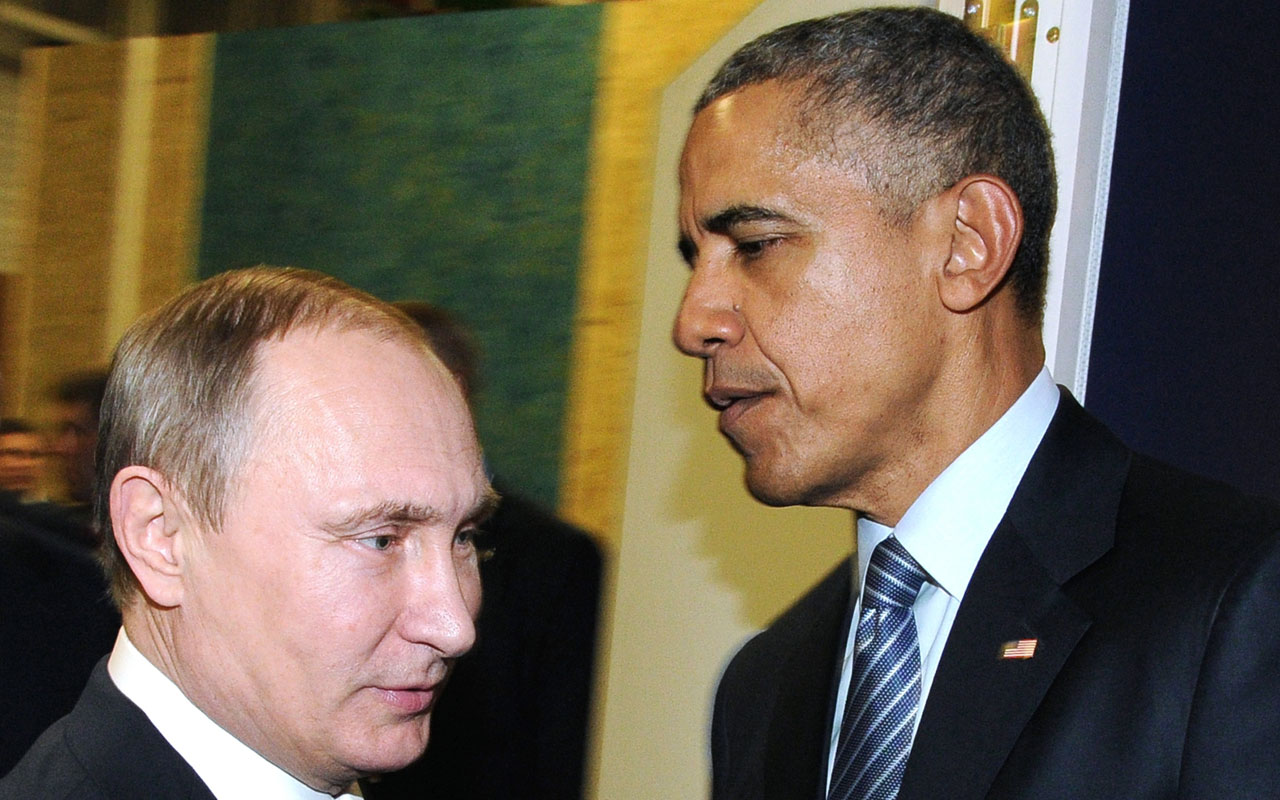- U.S. Evicts Russians For Spying, Imposes Sanctions After Election Hacks
President Barack Obama on Thursday ordered the expulsion of 35 Russian suspected spies and imposed sanctions on two Russian intelligence agencies over their involvement in hacking U.S. political groups in the 2016 presidential election.
The measures, taken during the last days of Obama’s presidency, mark a new post-Cold War low in U.S.-Russian ties, which have deteriorated over differences about Syria and Ukraine.
Allegations by U.S. intelligence agencies that Russian President Vladimir Putin personally directed efforts to intervene in the U.S. election process by hacking mostly Democrats have made relations even worse.
“These actions follow repeated private and public warnings that we have issued to the Russian government, and are a necessary and appropriate response to efforts to harm U.S. interests in violation of established international norms of behavior,” Obama said in a statement from vacation in Hawaii.
“All Americans should be alarmed by Russia’s actions,” he said.
It was not clear whether President-elect Donald Trump, who has repeatedly praised Putin and nominated people seen as friendly toward Moscow to senior administration posts, would seek to roll back the measures once he takes office on Jan. 20.
Trump has brushed aside allegations from the CIA and other intelligence agencies that Russia was behind the cyber attacks but on Thursday he said he would meet with intelligence officials soon.
“It’s time for our country to move on to bigger and better things,” Trump said in a statement. “Nevertheless, in the interest of our country and its great people, I will meet with leaders of the intelligence community next week in order to be updated on the facts of this situation,” he said, without mentioning Russia.
The Kremlin, which denounced the sanctions as unlawful and promised “adequate” retaliation, questioned whether Trump approved of the new sanctions. Moscow denies the hacking allegations.
U.S. intelligence agencies say Russia was behind hacks into Democratic Party organizations and operatives ahead of the Nov. 8 presidential election. U.S. intelligence officials also say that the Russian cyber attacks were aimed at helping Trump, a Republican, defeat Democrat Hillary Clinton.
Should Trump seek to overturn Obama’s measures, he would likely encounter wide bipartisan Congressional opposition.
U.S. House of Representatives Speaker Paul Ryan, the top Republican in Congress, said Russia “has consistently sought to undermine” U.S. interests and the sanctions were overdue.
Republican Senators John McCain and Lindsey Graham said they intended to lead effort in Congress to “impose stronger sanctions on Russia.”
Opposition from Trump could generate bipartisan discord early in his administration. “This is going to be a key source of tension post-inauguration,” said Eric Lorber, a senior associate at the Financial Integrity Network, which advises banks on sanctions.
SPIES AND SANCTIONS
Obama put sanctions on two Russian intelligence agencies, the GRU and the FSB, four GRU officers and three companies “that provided material support to the GRU’s cyber operations.
He said the State Department declared as “persona non grata” 35 Russian intelligence operatives and is closing two Russian compounds in New York and Maryland that were used by Russian personnel for “intelligence-related purposes”. The State Department originally said the 35 were diplomats.
The 45-acre complex in Maryland includes a Georgian-style brick mansion, swimming pool, tennis courts, and cottages for embassy staff.
A senior U.S. official told Reuters the expulsions would come from the Russian embassy in Washington and consulate in San Francisco. The Russian embassy declined to comment.
The Russians have 72 hours to leave the United States, the official said. Access to the two compounds will be denied to all Russian officials as of noon on Friday.
The State Department has long complained that Russian security agents and traffic police have harassed U.S. diplomats in Moscow, and U.S. Secretary of State John Kerry has raised the issue with Putin and his foreign minister, Sergei Lavrov.
The U.S. official declined to name the Russian diplomats who would be affected, although it is understood that Russia’s ambassador to the United States, Sergei Kislyak, will not be one of those expelled.
Obama said the actions announced on Thursday were just the beginning.
“These actions are not the sum total of our response to Russia’s aggressive activities. We will continue to take a variety of actions at a time and place of our choosing, some of which will not be publicized,” Obama said.
A report detailing Russia’s interference in the 2016 election as well as cyber attacks in previous election cycles would be delivered to Congress in the coming days, he said.
The sanctions were the strongest response yet by the Obama administration to Russia’s cyber activities, however, a senior administration official acknowledged that Trump could reverse them and allow Russian intelligence officials back into the United States once he takes office. He said that would be inadvisable.
Obama amended an executive order originally issued in April 2015 to respond to cyber hacking to include sanctions on those who tamper with information to interfere with an election.
Trump said in October he would “cancel every unconstitutional executive action, memorandum and order issued by President Obama” on his first day in office, without saying who would determine their constitutionality.
Reuters


 Billionaire Watch3 weeks ago
Billionaire Watch3 weeks ago
 Startups4 weeks ago
Startups4 weeks ago
 News4 weeks ago
News4 weeks ago
 News4 weeks ago
News4 weeks ago
 Bitcoin4 weeks ago
Bitcoin4 weeks ago
 Naira4 weeks ago
Naira4 weeks ago
 Forex3 weeks ago
Forex3 weeks ago
 Treasury Bills4 weeks ago
Treasury Bills4 weeks ago


























